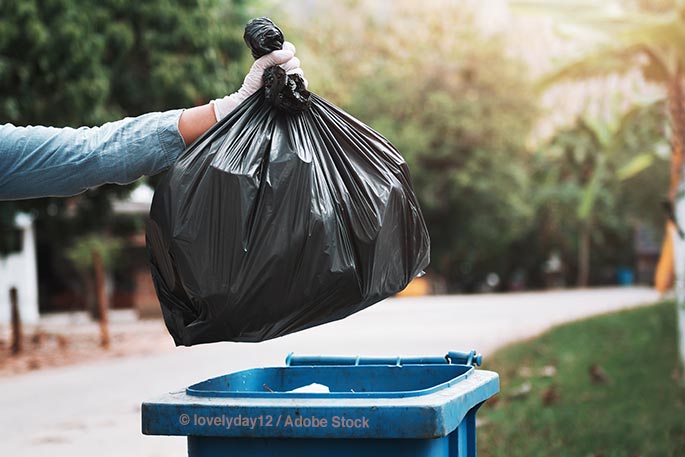
When most of us think about trying to be more eco-friendly when it comes to our trash, we’re focusing on what goes inside the bag. We’re thinking about whether we’re recycling everything we can, whether we’re composting, or if we’re doing everything we can to cut down on the amount of trash we’re throwing out in the first place, but how often do we think about the actual bag we’re using?
For those who want to make a difference in every aspect of our waste disposal, Hippo Sak eco-friendly garbage bags are the solution for you.
Eco-Friendly Trash Bags To Suit Your Needs
Hippo Sak trash bags offer a variety of numerous sizes for its customer’s needs. 13-gallon tall kitchen bags (the sort you use when you really need to clean up after some serious meal prep) are among their mainstays, but they also offer smaller bags for those smaller wastebaskets throughout your building.
In addition to the size and strength, the bags offer, Hippo Sak has eco-friendly trash bag options. Their ocean plastic bags, for example, contain 20 percent recycled plastic content taken off of beaches from countries like Haiti that are particularly at risk of adding to the amount of garbage currently floating in the ocean. In addition to those bags, Hippo Sak also has plant-based bags that are completely recyclable and smaller compostable bags for collecting and tossing out food scraps.
Thinking about what you’re throwing away, where it’s going, and what you can do to cut down on the amount of waste you generate seriously is important. However, asking yourself how many more resources you’re using to gather, transport, and toss your waste (and your recyclables) is also a necessary part of the process that shouldn’t be forgotten when it comes to recycling and trash disposal.




































































































































 Three Ways to Engage Teams and Clients to Maximize Your Recycling Program Engagement
Three Ways to Engage Teams and Clients to Maximize Your Recycling Program Engagement  How to Integrate Accessibility Into Your Sustainability Planning
How to Integrate Accessibility Into Your Sustainability Planning  Why Park Benches Can Promote Workplace Well-Being
Why Park Benches Can Promote Workplace Well-Being 
